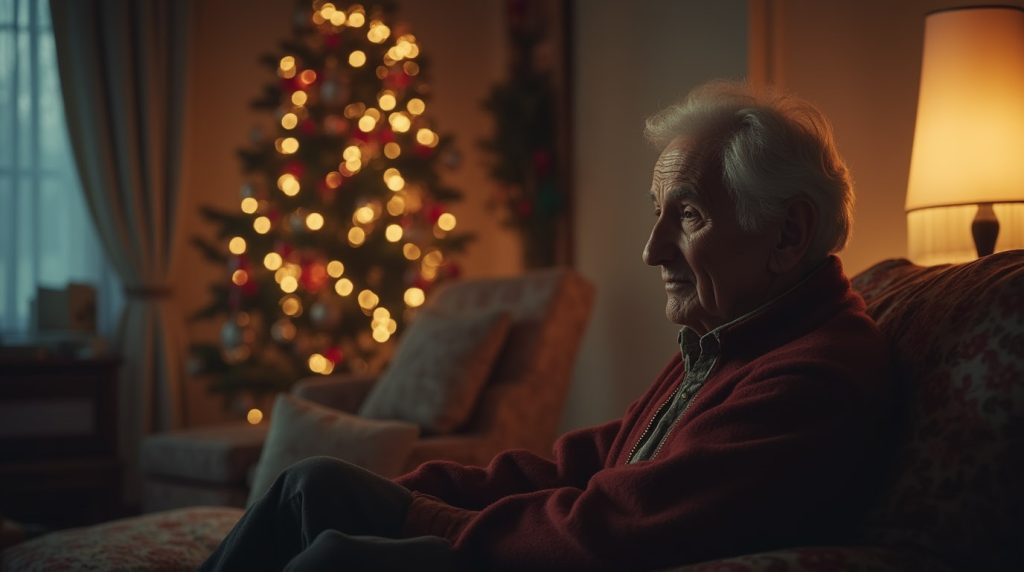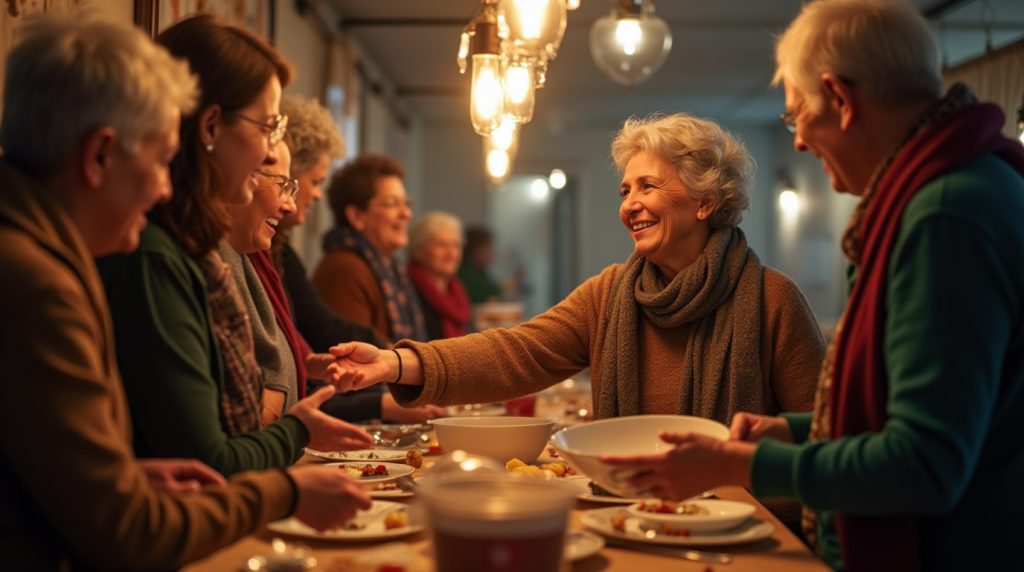The festive season is often described as “the most wonderful time of the year.” But for many, it’s a time when feelings of loneliness and grief intensify. While others are sharing laughter, exchanging gifts, and celebrating with loved ones, you may be grappling with a deep sense of loss or isolation. This contrast can make the holidays feel overwhelming or even unbearable.
If this resonates with you, know you’re not alone. Loneliness and grief are common during the festive period, whether you’re missing a loved one, feeling disconnected from others, or simply struggling to find joy amidst the celebrations. In this post, we’ll explore why these emotions often surface during the holidays and share practical strategies to help you navigate this challenging time.
If you’re seeking support, book a free consultation with me at Mynd.Works. You don’t have to face this alone.
Why Do Loneliness and Grief Feel Stronger During the Holidays?
The holidays can be an emotional trigger for many reasons. They’re steeped in memories, traditions, and societal expectations that can amplify feelings of loss or isolation. Here are some common reasons why loneliness and grief feel especially heavy this time of year:
1. The Absence of Loved Ones
The holidays often remind us of people we’ve lost. Whether through death, distance, or estranged relationships, their absence can feel magnified as we reflect on times when they were present.

2. Pressure to Be Social
The festive season is filled with gatherings and events. If you’re not surrounded by loved ones or don’t have a strong social network, this pressure can make loneliness more acute. Seeing others celebrate on social media can deepen this feeling.
3. Unrealistic Expectations
Movies, ads, and social media create an idealized image of the holidays. These portrayals often don’t reflect real life and can lead to feelings of inadequacy or sadness when your reality doesn’t match the picture-perfect version.
4. Memories of the Past
For many, the holidays bring up memories of better times, whether it’s a childhood tradition or a loved one who used to make the season special. While these memories can be comforting, they can also trigger sadness as you reflect on what’s changed.
Question for you: What’s the hardest part of the holidays for you? Is it the memories, the societal pressure, or something else? Share your thoughts in the comments.
Practical Strategies to Cope with Loneliness and Grief
While loneliness and grief are natural responses during the holidays, there are ways to manage these feelings and find moments of comfort. Here are some strategies to help you navigate this time of year:
1. Acknowledge Your Feelings
It’s okay to feel sad, lonely, or even angry during the holidays. Give yourself permission to feel what you’re feeling without judgment. Suppressing emotions often makes them more intense. Journaling, talking to a trusted friend, or reflecting quietly can help you process your emotions.
2. Honor Your Loved Ones
If you’re grieving, create space to honor your loved ones during the festive season. Light a candle in their memory, prepare their favorite dish, or share stories about them with others. These rituals can help you feel connected to their presence, even in their absence.

3. Focus on Small Moments of Joy
The holidays don’t have to be grand or perfect. Focus on small, meaningful moments that bring you comfort—a warm cup of tea, a favorite holiday movie, or a peaceful walk in nature. These tiny acts of self-care can make a big difference.
4. Reach Out to Others
Loneliness often feels insurmountable, but connection is closer than you think. Reach out to friends, family, or even acquaintances. A simple text or phone call can help bridge the gap. If you’re feeling isolated, consider volunteering—it’s a great way to meet new people and make a positive impact.

5. Limit Social Media
Scrolling through social media can create the illusion that everyone else is living a perfect, joyous life. Remember, most people share their highlights, not their struggles. If social media makes you feel worse, limit your time online or take a break altogether.
6. Start a New Tradition
If old traditions feel painful, create new ones that reflect where you are in life now. This could be something as simple as cooking a new recipe, writing letters to yourself, or starting a gratitude journal.

7. Practice Gratitude
Gratitude can feel difficult when you’re struggling, but even small acknowledgments can shift your perspective. Each day, write down one thing you’re grateful for—whether it’s a kind word from a stranger, a sunny day, or a moment of peace.
8. Seek Professional Support
If loneliness or grief is overwhelming, consider reaching out to a therapist. Talking to a professional can provide tools to navigate these emotions and build resilience. At Mynd.Works, I offer online therapy sessions tailored to your needs.
Question for you: What’s one small act of self-care you can commit to this holiday season? Let’s share ideas and inspire each other in the comments.
Real-Life Stories: Finding Hope Amid Loneliness and Grief
Hearing how others have coped can remind you that you’re not alone. Here are two short stories inspired by real experiences:
Emma’s Story: Building New Memories
Emma, 32, lost her mother two years ago, and the holidays haven’t felt the same since. Last year, she decided to create a new tradition to honor her mom. She baked her mom’s favorite cookies and invited a close friend over to share them while watching holiday movies. It wasn’t the same, but it brought her comfort and a sense of connection.
James’ Story: Finding Connection
James, 50, has been feeling lonely since his divorce. Last Christmas, he decided to volunteer at a local shelter, serving meals to those in need. The experience reminded him of the power of human connection and gave him a sense of purpose during a difficult time.
Question for you: Do you have a story about coping with loneliness or grief during the holidays? What helped you find peace or connection? Share your experience in the comments.
Final Thoughts: You’re Not Alone
If the holidays feel heavy this year, remember: you’re not alone, and it’s okay to feel this way. Loneliness and grief are natural responses to difficult circumstances, but they don’t have to define your holiday season. By taking small steps—whether it’s reaching out to a friend, honoring a loved one, or seeking professional support—you can find moments of peace and connection.
At Mynd.Works, we’re here to support you. If you’re struggling, book a free consultation with me. Together, we can create a plan to help you navigate this season with greater ease and self-compassion.
Over to You: What’s one thing you’re planning to do differently this holiday season to take care of yourself? Let’s start a conversation in the comments.
Internal Links:
- Why Do I Feel So Anxious After Posting on Social Media? (And How to Stop the Panic)
- Facing Anxiety Head-On: How to Know When Professional Help Is Needed
External Links:
- Mind: Support for Mental Health During the Holidays
- NAMI: Coping with the Holiday Blues
- HelpGuide: Coping with Grief and Loss
